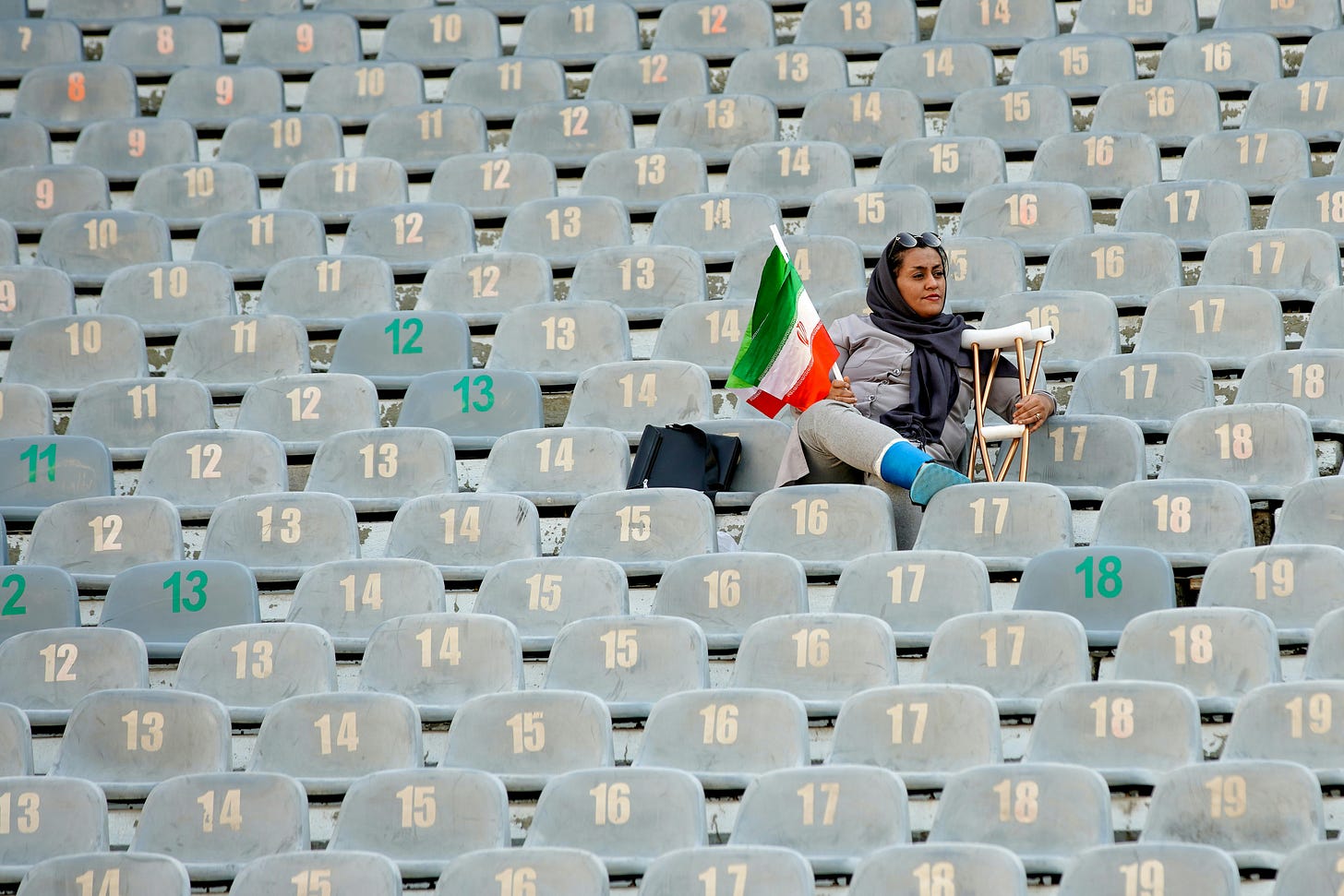World Cup 2026: The Iran dilemma
Iran's qualification presents FIFA with a complicated geopolitical puzzle.
As the football world grapples with the value of the Club World Cup, FIFA faces a far greater and unprecedented geopolitical dilemma concerning the real World Cup next year: what to do with Iran?
On March 25th, a brace from its talisman, Inter's Mehdi Taremi, punched the Iranian national team's ticket to its fourth consecutive World Cup, and its seventh overall.
This achievement, however, is at risk of being completely overshadowed by off-field events involving the US, Iran, and Israel. In a stunning escalation last week, Washington launched a direct attack on Tehran—an unprecedented act. US forces entered Iranian airspace and bombed three of its nuclear facilities.
It was an attack without precedent. In a matter of days, the United States pivoted from being prepared to meet with the Iranian delegation to continue dialogue on Tehran's nuclear program, to bombing its facilities and threatening severe retaliation if the regime responded.
A nation with Iran's geopolitical stance could not simply ignore such an act. Yet, it could not afford to retaliate in kind, as such a move would trigger a full-blown war with the United States.
Tehran opted for what could be described as a "diplomatic" attack. The regime informed the United States that it would strike their largest military base in the region, located in Qatar. And it did. While the "12-Day War," as dubbed by Trump, is supposedly over, the situation remains volatile. The third player in this crisis, Israel, has become a wild card that no one—not even Washington—seems to trust.
But will any of this affect the Iranian national team's participation in the upcoming World Cup?
Would the United States permit an enemy nation's team on its soil?
And what will be FIFA's move?
Let's explore the possibilities.
Could Iran Be Boycotted?
The first and most significant hurdle isn't related to sports, but to law. A Trump administration executive order imposes a strict travel ban on citizens from several countries, including Iran. While the ban has exemptions that could theoretically apply to athletes and staff for sporting events, the current political climate would make any such concession an act of enormous political weight.
But visa issues aside, could FIFA itself decide to shut the door on Iran? History suggests it could. World football's governing body has a track record of excluding nations involved in armed conflicts.
Yugoslavia was banned by UEFA from the 1992 European Championship and subsequently by FIFA from the 1994 World Cup. More recently, Russia was indefinitely suspended from all competitions following its invasion of Ukraine. Even Iran itself was excluded from the 1986 World Cup because of its war with Iraq.
However, FIFA's consistency is highly questionable. While Russia was immediately excluded after the conflict in Ukraine began, Israel's national team has faced no sanctions—not from UEFA, FIFA, or the Olympic Committee. Israel is currently competing to qualify for the next World Cup without issue, placed in a group with Norway and Italy.
Yet, for the past two years, Israel has been a key player in multiple wars. In addition to the conflict in Gaza—where it is perpetrating a massacre of civilians so devastating it defies description—Israel has also taken action in Lebanon, Syria, Yemen, and most recently, Iran. Still, Israel appears to be above the rules.
This double standard raises a critical question: How will FIFA handle Iran? More importantly, how much weight do Zurich's decisions truly carry? It has become a widespread sentiment that the rules apply only to a select few.
Keep reading with a 7-day free trial
Subscribe to Sports & Geopolitics to keep reading this post and get 7 days of free access to the full post archives.




